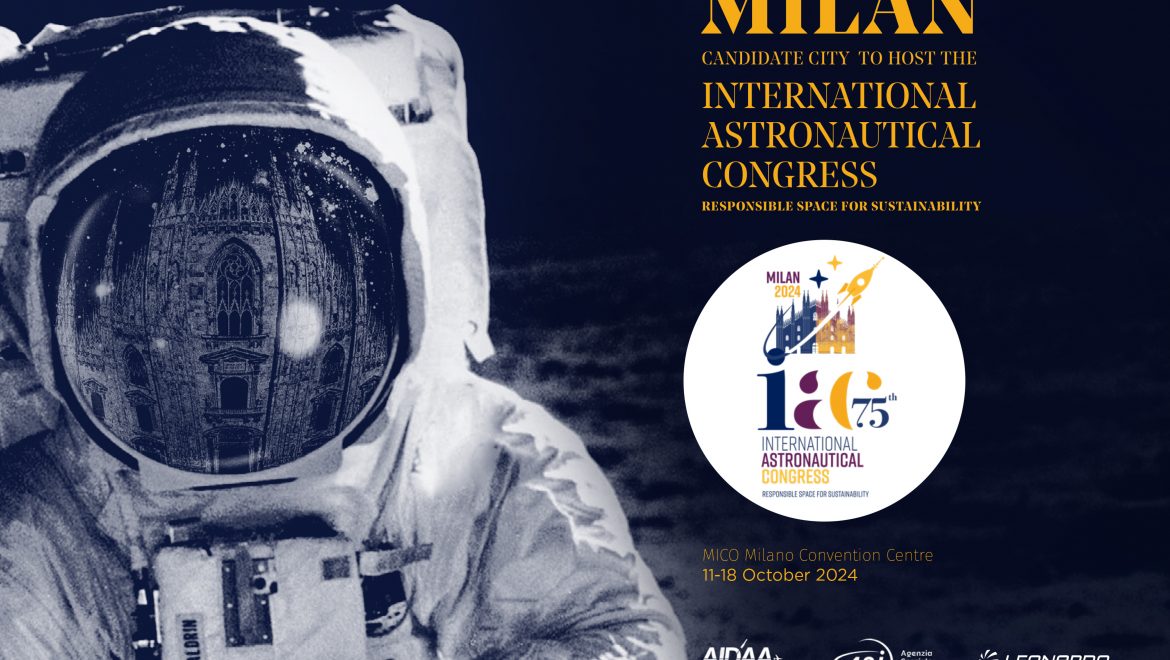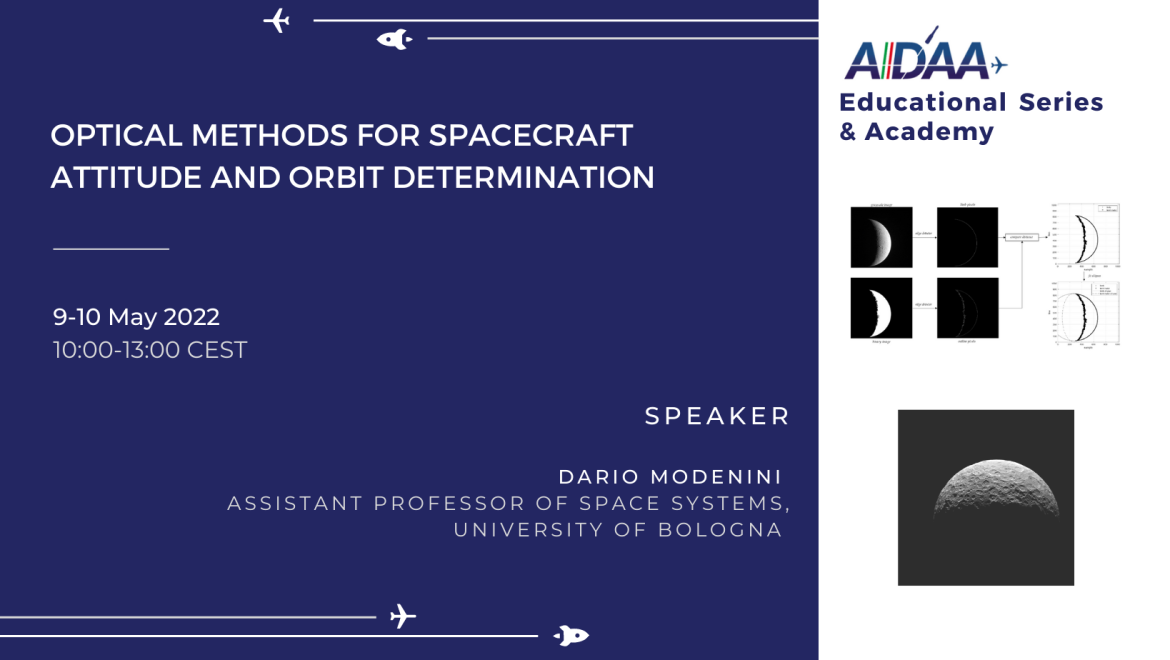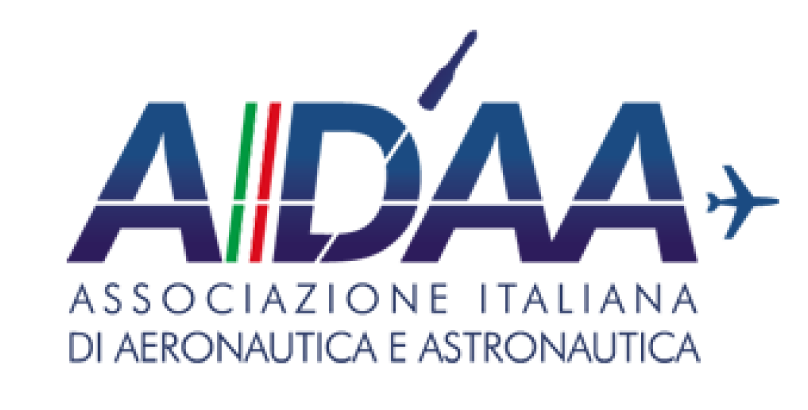Cerimonia di firma del contratto IAC 2024
Cerimonia di firma del contratto IAC 2024
15 July, Milan
L’Italia al centro del dibattito internazionale sull’uso dello Spazio a supporto della sostenibilità: il 15 luglio la firma del contratto per ospitare a Milano IAC 2024
Il 75° Congresso Astronautico Internazionale (IAC), in programma nel 2024, porterà a Milano oltre 8000 esperti del mondo dell’industria, della ricerca e delle istituzioni
Venerdì 15 luglio alle 11.00 si terrà presso Palazzo Lombardia la cerimonia di firma del contratto tra la Federazione Astronautica Internazionale (IAF) e l’Associazione Italiana di Aeronautica e Astronautica (AIDAA), incaricata di organizzare a Milano, dall’ 11 al 18 ottobre 2024, la 75ma edizione dell’International Astronautical Congress (IAC), la più importante manifestazione mondiale nel settore dello Spazio. Verrà inoltre formalizzata una lettera di intenti che impegna l’Agenzia Spaziale Italiana (ASI) e Leonardo a supportare AIDAA nell’organizzazione dell’evento.
La candidatura di Milano, dichiarata vincitrice a ottobre 2021, è stata promossa da AIDAA, ASI e Leonardo, in rappresentanza rispettivamente del mondo accademico, delle istituzioni e dell’industria spaziale italiane, e supportata in modo determinante dal Governo italiano e dalle istituzioni locali, in particolare dal Presidente della Regione Lombardia e dal Sindaco di Milano.
Alla cerimonia interverranno il Presidente della Regione Lombardia, Attilio Fontana; la Presidentessa del Consiglio Comunale di Milano, Elena Buscemi; l’Amministratore Delegato di Leonardo, Alessandro Profumo; il Presidente di ASI, Giorgio Saccoccia; il Presidente di AIDAA, Erasmo Carrera; la Presidentessa di IAF, Pascale Ehrenfreund.
Con il motto “Responsible space for sustainability”, IAC 2024 vuole sottolineare l’importanza dello Spazio come “ambiente” da mantenere sicuro, aperto all’esplorazione, all’uso pacifico e alla cooperazione internazionale da parte delle generazioni attuali e future, nell’interesse del Pianeta e di tutti i Paesi, indipendentemente dal loro grado di sviluppo e senza discriminazioni di alcun genere. Con questo auspicio si incontreranno presso il Milano Congress Center (Allianz MiCo), il più grande Centro Congressi d’Europa, oltre 8000 esperti da agenzie spaziali, aziende, centri di ricerca e associazioni di tutto il mondo, riuniti allo IAC 2024 organizzato con il contributo di AIM Group International.
Oggi in orbita ci sono poco meno di 8000 satelliti, di cui circa 5000 operativi, un numero destinato a crescere significativamente nei prossimi anni. Sono sempre più i Paesi e gli attori pubblici e privati protagonisti della Space Economy. L’orbita terrestre è però una risorsa limitata e il suo sovraffollamento porta rischi in termini di sicurezza, di inquinamento luminoso e di disponibilità dei dati e dei servizi messi a disposizione dalle tecnologie spaziali. Economia, industria, agricoltura, trasporti, energia, finanza, sviluppo urbano, comunicazioni, monitoraggio ambientale, sicurezza: i sistemi spaziali costituiscono uno strumento fondamentale per un futuro più digitale, verde e sostenibile, e sono vitali per il funzionamento della società, per l’economia e il commercio globali.
La sfida dell’uso responsabile dello Spazio per la sostenibilità vede in prima fila l’Italia, tra i pochi Paesi al mondo a disporre di una filiera completa nella Space economy: dalla manifattura, passando per lo sviluppo di nuove applicazioni e la gestione dei servizi satellitari fino ai sistemi di propulsione e lancio.
Competenze espresse dal mondo della ricerca e da aziende di ogni dimensione, dalle start-up e le PMI fino alla grande industria, supportate dalle istituzioni, che si riuniscono il 15 luglio per siglare l’impegno a sostenere IAC 2024.
La stampa può seguire l’evento in presenza, registrandosi a Palazzo Lombardia 15 minuti prima dell’inizio dell’evento, oppure in streaming a link













